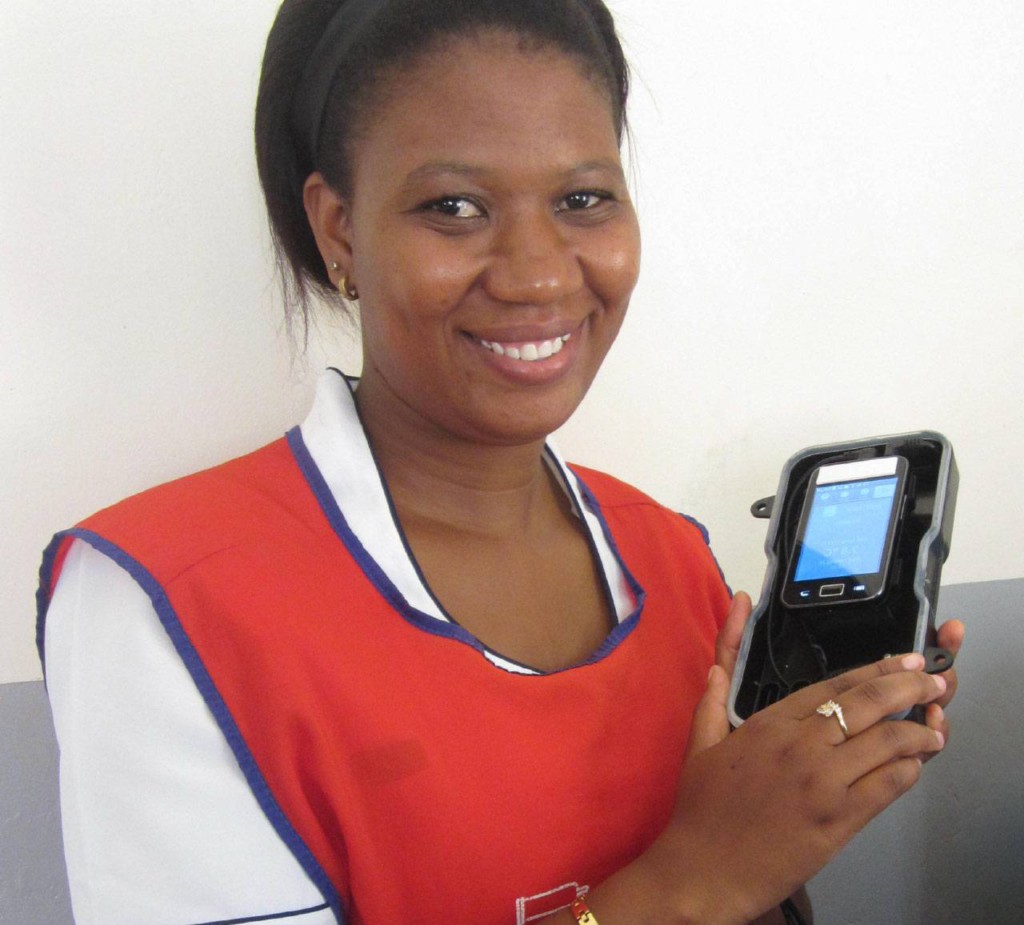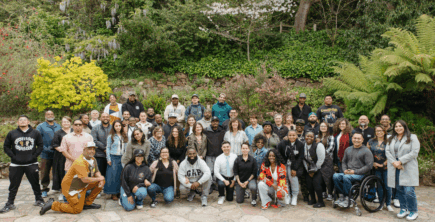
LGBT

Since defining our focus area of Time-Critical Health in the fall of 2019, learning from and collaborating with our health-focused partners has crystalized awareness of the stark truth: The leading cause of death in the world today is due to delay. Understanding how this fact manifests in different communities—disproportionate access to reliable insulin in urban America, or the lack of basic health treatments to prevent infant deaths in hard-to-reach areas—demonstrates the fundamental need for enhanced Time-Critical Health care.
PagerDuty’s commitment to supporting Time-Critical Health, or TCH—which focuses on helping to save lives by reaching people faster—reflects one of the company’s key assets: the ability to leverage our technology to activate real-time response. As a company dedicated to digital management operations, the work carried out through our social impact arm, PagerDuty.org, is an extension of this focus. PagerDuty.org’s mission is to meet urgent needs faster to advance justice and health. This means we align our internal assets to prioritize equity, and use technology to drive efficiency and innovation.

To reach people faster and reduce the number of deaths resulting from delays, we knew we needed to support organization resilience and response beyond project-based funding, and leverage our core asset—our digital operations technology—as central to our approach. We couple grant dollars with in-kind product and specialized technical pro bono support to help partner organizations ensure around-the-clock access to critical technology-enabled services.
In July 2020, PagerDuty.org launched a Request for Proposals (RFP) to identify equity-focused, tech-powered solutions to time-sensitive health issues. We selected a global portfolio of organizations that work at the intersection of urgency, equity, and technology to recommend unrestricted funding distributions totaling $350,000 from the Pagerduty.org Fund at Tides Foundation. PagerDuty also provided in-kind technology, and pro bono technical support over a multi-month sprint. International Medical Corps (IMC), with deep experience and proven results in emergency response, and TrekMedics and Nexleaf Analytics, for example, all spearheaded new technologies with the flexibility to scale across geographies and address emergent issues.

Within six months of launching PagerDuty.org’s Time-Critical Health Fund, the world was thrust into the COVID-19 pandemic: It became even more essential to leverage PagerDuty’s platform and core ability to orchestrate across teams and complex systems to reach people faster—especially the most underserved populations. In the midst of this extraordinary global event, we turned to this new cohort of PagerDuty.org partners to understand the rapidly evolving issues they faced. We then quickly executed on a plan to help them reduce delays and improve outcomes in emergency response and healthcare.
We emerged with three takeaways:
1. Long-term solutions require a partnerships approach that goes beyond philanthropic dollars.
We engaged multiple assets—people, product, and funding—and ensured our partners held authority over when and how to deploy these resources, to address problems directly in front of them and plan for the future.
Our hypothesis that our partnerships could be more effective if we centered them around our technology solution meant we had to get that piece right. We took the time upfront to deeply scope our partners’ core pain points and current technology gaps and resourcing. We then engaged an internal team of product, engineering, and data science leads to co-create an implementation solution. The result was an 8-week implementation sprint that pushed us all to bring a more investigative lens to issues in THC. By engaging PagerDuty employees who had transferable expertise, we were able to develop tailored tools that our partners can use to streamline and scale critical pieces of their delivery and response models.
2. Digital transformation is accelerating faster than ever before—across all sectors, there’s an urgency to use technology to serve customers, consumers, and constituents more efficiently and effectively—and nonprofits can’t be left behind.
COVID-19 has been the ultimate accelerator for digital-first solutions. As nonprofits continue to serve on the frontlines, arming them with the digital tools to solve TCH issues equates to saving lives.

“PagerDuty helped TrekMedics quickly set up an incident-monitoring system with technical integrations, streamlined notifications, and a robust set of alerts.” (Photo © Trek Medics)
Trek Medics is a cloud-based 911-type emergency dispatch platform that alerts, coordinates, and tracks responders on any mobile device. As COVID-19 took hold in 2020, use of Trek Medic’s Beacon platform surged, and they experienced a significant increase in users and incidents dispatched through the platform. PagerDuty helped TrekMedics quickly set up an incident-monitoring system with technical integrations, streamlined notifications, and a robust set of alerts. The new tools alerted Trek Medics to infrastructure issues that would otherwise have gone unnoticed—enabling the team to quickly resolve issues to ensure their platform remained uninterrupted.
3. Cross-sector collaboration inspires solutions that are informed by rich, different perspectives.

“Using Nexleaf’s sensors with PagerDuty’s platform enabled more real-time power-outage alerts in rural Kenyan healthcare clinics” (Photo © Nexleaf)
PagerDuty.org’s pro bono program enabled our nonprofit partners—who lacked in-house resources—to build digital solutions. Nexleaf Analytics—a nonprofit technology company that designs sensor technology and uses data platforms to improve the performance of life-saving medical equipment—leaned on PagerDuty for our DevOps expertise. Using Nexleaf’s sensors with PagerDuty’s platform enabled more real-time power-outage alerts in rural Kenyan healthcare clinics. The data collected can inform better responses and solutions to prevent future outages. Over the next few months, Nexleaf will continue to test alerts, with the ultimate goal of increasing power and monitoring outages across 17,000 healthcare facilities.
Throughout these pilots with IMC, Trek Medics, and Nexleaf Analytics, we sought to balance the long-term capacity and growth of our partner organizations with a responsive and adaptive approach, and continually adapted to meet the pandemic’s ever-changing demands.
Drawing on learnings from our first cohort of TCH partners, we launched an open call for funding in April 2021 to support Equitable COVID-19 Vaccine Access and Distribution solutions. With the objective of directing funds upstream to close the global vaccine inequity gap, we also formed a coalition with Salesforce, Workday, and Pledge 1%. Through the Go Give One $5M campaign, our coalition will support the Global Vaccine Alliance (Gavi) and the WHO Foundation deliver two billion doses of COVID-19 vaccines to 92 lower-income countries by early 2022.
PagerDuty.org’s focus on Time-Critical Health and deep collaboration with healthcare partners continually highlights the dangers of delay. Our hypothesis helped us understand how digital tools are critical in preventing incidents that result in delay—and in helping nonprofits respond in real-time to address the critical needs of the communities they serve.
Learn more about PagerDuty.org’s work: www.pagerduty.org.

LGBT

Corporate Partners

Philanthropy

Read the stories and hear the voices of social change leaders fighting for justice.